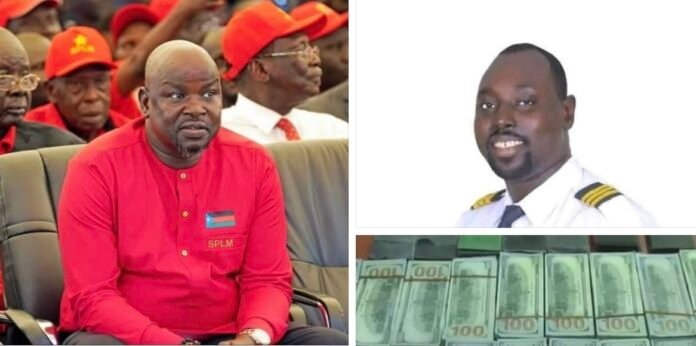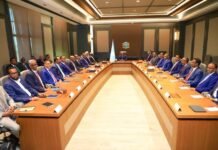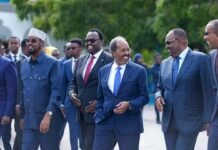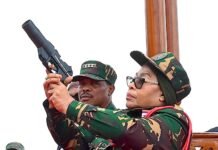By Horn Africa News
Juba – A silent but escalating power struggle is unfolding in South Sudan as the country’s National Revenue Authority (NRA) takes aim at powerful cartels long accused of siphoning off public funds.
Under the leadership of Dr. Benjamin Bol Mel and Commissioner General Simon Akuei, the NRA has issued a bold directive requiring all revenue-generating institutions to remit their collections directly to the central authority. The move is intended to enhance transparency and accountability—but it’s being fiercely resisted by entrenched political networks that have thrived under opaque systems of informal control.
Juba International Airport: The Eye of the Storm
The conflict has reached a boiling point at Juba International Airport, one of the country’s most lucrative revenue hubs. While the airport should be a national asset, insiders say a large portion of its earnings has historically disappeared into private hands—used not for public good but to grease political deals and sustain patronage networks, particularly among those with ties to the Office of the President.
Sources close to the matter emphasize that President Salva Kiir is not personally implicated. However, the airport remains a symbolic and strategic flashpoint in a much broader war for control over national resources.
Behind the Outrage: Power, Not Professionalism
Recent reshuffles within the airport’s management and other key sectors have provoked waves of public criticism, often framed as concerns over experience or competence. But observers suggest these objections mask a deeper anxiety: the fear among elites of losing access to illicit revenue streams and the political leverage that comes with them.
“Every time a loyalist is removed, the backlash is swift and loud,” one analyst told Horn Africa News. “But it’s not really about qualifications—it’s about protecting networks of power and profit.”
A Nation at a Crossroads
With the NRA tightening its grip on revenue flows, tensions are likely to intensify. The coming months may reveal just how far reformers are willing to go—and how fiercely the old guard will fight to hold onto the shadows of influence.
This emerging confrontation is about more than just money. It reflects a broader struggle for the soul of South Sudan’s economy, testing the country’s capacity for reform, institutional integrity, and long-overdue change.
If the NRA succeeds, it could mark a turning point in South Sudan’s journey toward fiscal transparency and governance. If it fails, the country risks sliding deeper into a culture of impunity and elite capture. Translatw this into somali




